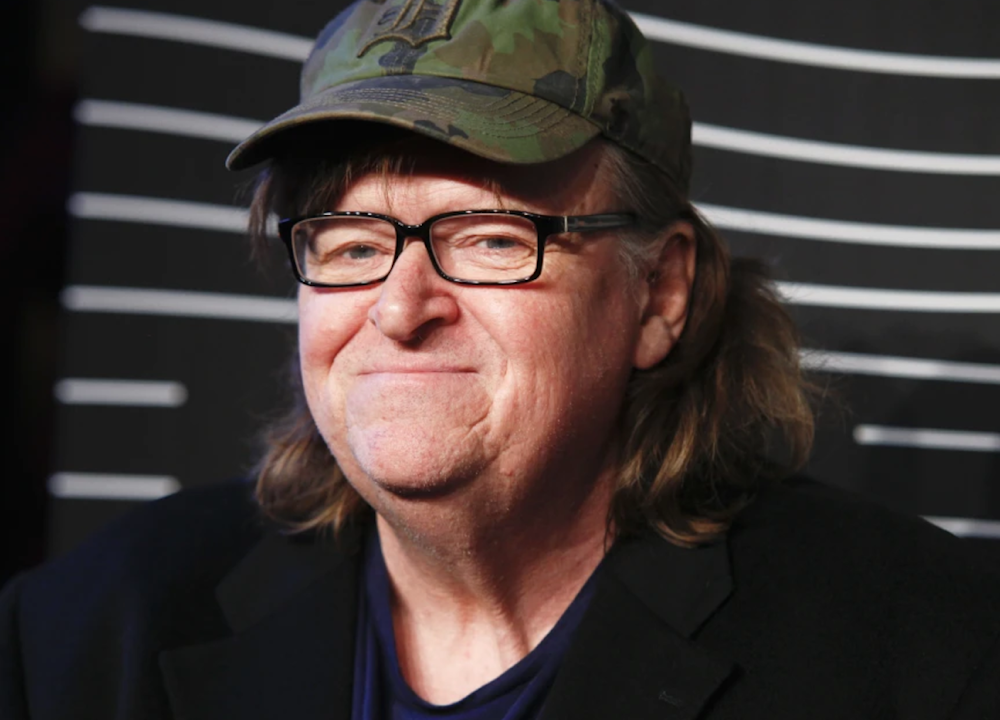Propaganda hiding reality of Gaza genocide: US director Michael Moore
Michael Moore asserts that "no filmmaker, writer, or artist should ever have to tell the story of their own extermination."
-

In this May 16, 2016, photo, Michael Moore attends the 20th Annual Webby Awards at Cipriani Wall St. in New York. (AP)
Michael Moore, an American director and producer, has accused strong marketing efforts of concealing the genocide and ethnic cleansing in Gaza.
Moore addressed the ongoing humanitarian catastrophe in the film From Ground Zero, which was made by Palestinian filmmakers Aws Al-Banna, Ahmed Al-Danf, Basil Al-Maqousi, and Mustafa Al-Nabih.
The film, which was distributed in the United States, has 22 short films ranging from documentary to drama, action, and animation.
In an X post, the director emphasized that “no filmmaker, writer, or artist should ever have to tell the story of their own extermination," detailing how Palestinian filmmakers found a way to film in the last year using the tools at their disposal.
No filmmaker, writer or artist should ever have to tell the story of their own extermination. Yet 22 courageous Palestinian filmmakers found a way to film their story this past year in Gaza using whatever tools they could pull from the rubble of their homes and cities. The… pic.twitter.com/6livD8qMuS
— Michael Moore (@MMFlint) January 6, 2025
He called the very existence of the work a "cinematic miracle", urging the public to see the production.
Moore questioned media silence on his website, asserting that the tales in Gaza are not being told on daily news channels, since "military leaders prohibit access so that journalists and filmmakers cannot bring us the truth."
The director noted that despite being forced to fund the genocide as Americans, "we are not allowed to witness what Amnesty International and Human Rights Watch have declared to be a genocide and an ethnic cleansing — war crimes committed every day in our name."
He noted that instead, the public is a victim of a "powerful propaganda campaign" aimed at dehumanizing the 5 million people in the occupied Palestinian territories who are imprisoned behind walls and barbed wire, forced to starve, with "nearly every hospital and school in Gaza bombed to smithereens and half of the territory's homes reduced to rubble."
Revealing the production is one of 15 nominees for Best International Feature Film at the 2017 97th Academy Awards, Moore published the film's US screening locations and urged people to view it, vowing that it will not be disappointing.
'Israel' commits $150 mln to shape intl. perception amid Gaza genocide
"Israel" has approved an additional $150 million for its 2025 propaganda budget, aiming to influence international perceptions regarding its war on Gaza, the Middle East Monitor news website reported last week.
The website pointed out that this significant 20-fold increase in funding is intended to reinforce Tel Aviv's narrative, presenting its war on the besieged enclave as justified, while framing the Palestinian Resistance as “anti-Semitic” and equating it to “Nazi” terrorism.
The Middle East Monitor added that the decision also seeks to amplify Islamophobic rhetoric in European nations by likening the Palestinian struggle to extremist groups like ISIS.
According to the news website, the broader objective of these efforts is to erode international sympathy for the Palestinian cause and bolster support for "Israel’s" crimes in Gaza.
Israeli Foreign Minister Gideon Sa’ar, addressing the expanded budget, stated that “Israeli propaganda efforts and the war of consciousness have not received the critical and life-saving resources and tools they require for decades.”
Israeli propaganda, often referred to by critics as hasbara, involves efforts by the Israeli government, advocacy groups, and private organizations to shape perceptions of "Israel", its policies, and its actions globally. These campaigns aim to promote a favorable image of "Israel" and influence public opinion and policy decisions in other countries.
Among the key components of Israeli propaganda are responding to accusations regarding its treatment of Palestinians, military actions, or settlement policies by framing them as defensive measures against terrorism or existential threats. It portrays Palestinians or critics as biased, anti-Semitic, or aligned with extremist ideologies, and monitors and discreds organizations or individuals critical of "Israel’s" policies.
"Israel" employs social media campaigns to amplify pro-"Israel" narratives, often targeting young audiences, as well as training "digital warriors" or grassroots activists to advocate for "Israel" online and leveraging partnerships with influencers and celebrities to promote "Israel’s" image.
It also funds initiatives like trips for journalists, students, and politicians to "Israel" to grow sympathy for its perspective. Critics warn that Israeli propaganda detracts attention from ongoing apartheid, occupation, and violence in Palestinian territories.

 4 Min Read
4 Min Read








